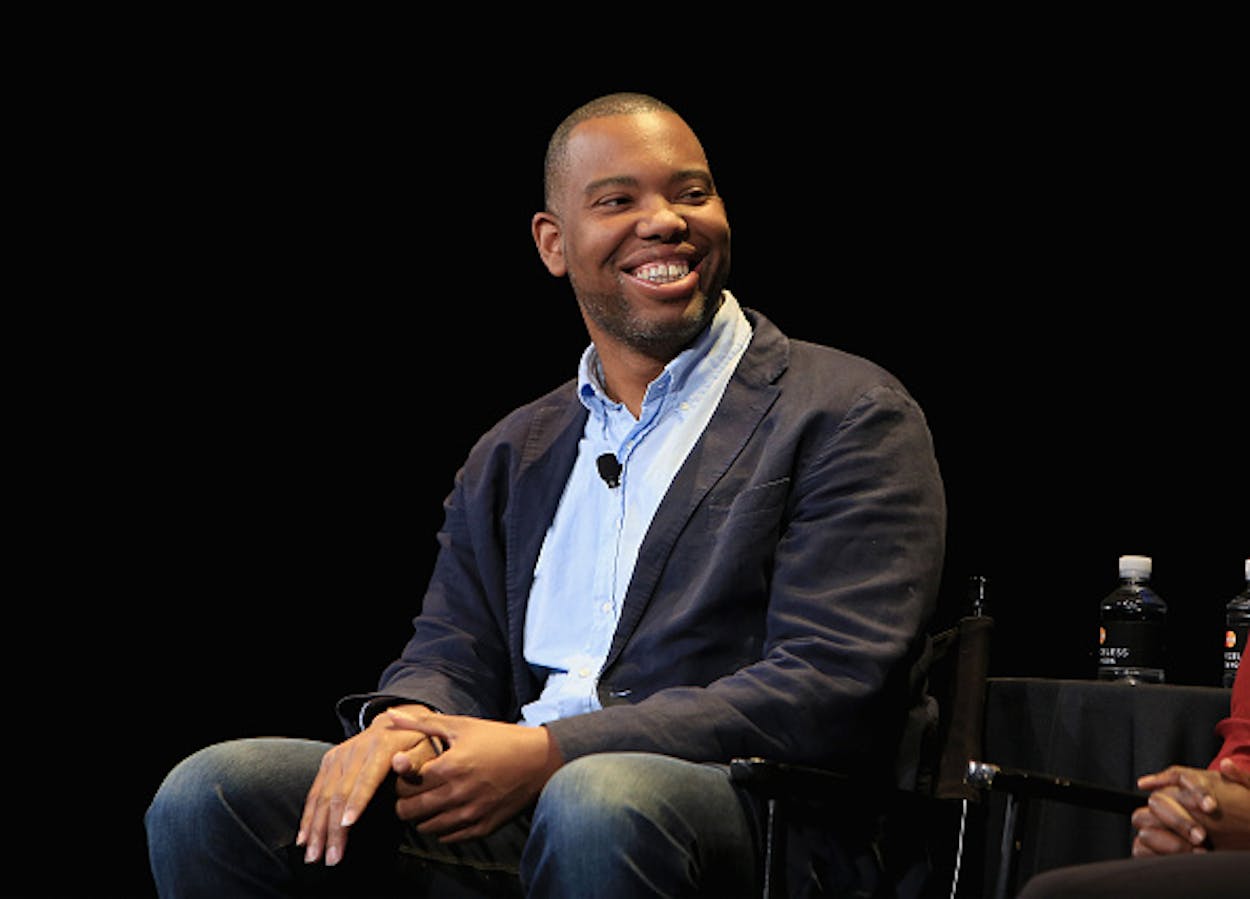In December, Ta-Nehisi Coates, a national correspondent at the Atlantic and author of We Were Eight Years in Power, deleted his Twitter account. It was the day after Cornel West, in an essay for the Guardian, criticized Coates for what he considers a “narrow” view of black Americans and a “preoccupation with white acceptance.” The essay was spread widely on Twitter, and in one weird twist, white supremacist Richard Spencer agreed with West’s take.
On Saturday, during a keynote talk at SXSW, Coates explained that perhaps the roots of his “feud” with West are the expectations that people have for those they view as “public intellectuals.”
“You have someone who’s perceived as brilliant, smart, intelligent, all these sorts of adjectives when you win a MacArthur genius [grant] that they put on you, and that therefore means that you can be brilliant, smart, intelligent on anything,” Coates told Jeffrey Goldberg, the Atlantic‘s editor in chief. “I’m not smart like that. I don’t possess that kind of intelligence. I possess a kind of curiosity that allows me to go deep on a particular thing.”
Coates is comfortable within his role as an inquisitive writer, but is cautious not to step outside of that role for fear that he would “ultimately embarrass” whatever cause he was trying to support. “Because the minute I had to stand next to somebody who knew something about that [cause], who was on the opposing side, I would be embarrassed,” Coates said. “I think about it as fighting. When you’re throwing a punch, your feet have got to be set. And my feet are set in the things I’ve read, researched, and thought about.”
In Coates’s years as a writer at the Atlantic, he’s written extensively about President Barack Obama, grappling with the complicated reality of the United States’ first black president and how it’s shaped the country. While Coates has often been critical of how Obama has addressed black Americans, he believes that his presidency paved the way for more black writers and journalists. In his view, it created a general appetite and curiosity about race relations in the United States, opening up a window for writers who could best speak on the issues.
But Coates also thinks Obama’s presidency opened up other windows. “Could Trump have become president without Barack Obama before him?” Goldberg asked.
“Trump could not have become president without the response to Barack Obama,” Coates clarified. “It’s important we state it that way. I don’t think there’s anything Barack Obama did except be a human being who happened to check ‘African American’ on his census form.”
Throughout the session, Coates was candid about his views and understanding about racism in the United States. When Goldberg asked for Coates’s thoughts on whether the United States would return to the status quo after its “experiment” with a black president, Coates said he didn’t see the United State’s grip on racism ending soon, pointing out that Dylann Roof—the gunman who killed nine black worshippers during their church Bible study—as well as many of the white supremacists who marched in Charlottesville, were young. Coates also explained that it would take the United States accepting the idea that banishing racism is integral to the country’s survival for real change to take root, meaning white people would have to get rid of the concept of “whiteness and its suite of privileges.”
As the session wrapped up, Goldberg read an audience query about which question Coates would ask Trump if he could ask only one. “This is horrible for a journalist to say, but I don’t feel like I have questions for Trump,” Coates replied, explaining that Trump is always so blatant about his motives and beliefs, there’s no real prodding necessary. (He went on to cite the president’s comments about hypothetically shooting someone, but not losing votes and referring to Haiti, El Salvador, and African countries as “sh*thole countries.”)
When Goldberg pushed back, wondering if Coates didn’t think that Trump might be reflective in a one-on-one interview, Coates didn’t change his mind. “There’s nothing about Donald Trump that strikes me as reflective,” Coates said.
He’s also not changing his mind about leaving Twitter. Although Coates enjoyed using the platform, he ultimately decided that it isn’t good for him, explaining that he works best when he has the time to slow down and think things through rather than immediately vent an opinion. He has thoughtful, nuanced observations to share, but he’ll give himself a little more room than 280 characters.
It may be a somewhat radical view to express at SXSW, where Twitter exploded nearly ten years ago. Goldberg challenged him on his hard line.
“Never say never,” Goldberg said.
“Nah, I’m saying never,” Coates replied.








